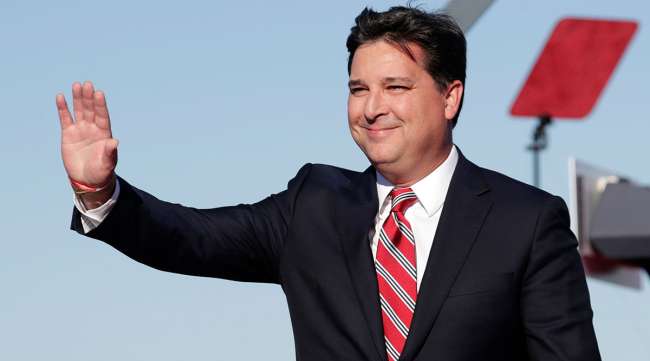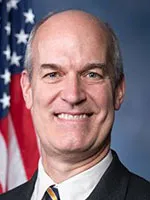Senior Reporter
Congressional Committees Eye Water Resources Act for 2024

[Stay on top of transportation news: Get TTNews in your inbox.]
Legislation meant to improve connectivity along the nation’s commercial waterways is on transportation policymakers’ radar for 2024.
The leadership of the congressional transportation panels intends to proceed with consideration of the Water Resources Development Act during the current session of Congress.
The legislation, which has been cleared for enactment biennially since 2014, approves funding for projects pertaining to ports, dams, waterways, canals and locks. Major projects under the jurisdiction of the U.S. Army Corps of Engineers are a priority for congressional policymakers.
“By authorizing projects and studies, and providing direction on programmatic changes, WRDAs better enable the [U.S. Army Corps of Engineers] to continue working to achieve its key civil works missions,” said Rep. David Rouzer (R-N.C.), chairman of the Water Resources and Environment Subcommittee, earlier this month. “Since 2014, Congress has enacted a WRDA bill every two years with strong bipartisan support. This consistency over the last decade has allowed Congress to respond to local water resource needs more effectively. It also imparts confidence that we can address water infrastructure needs that may arise in the future, regardless of partisan discord in Washington.” Rouzer is key in the crafting of the latest WRDA authorization.
“Through these bipartisan bills, Congress has authorized new projects and studies across the country,” Rouzer continued.
Senior Democrats, advocating for climate resilience policies, argue the ongoing implementation of 2021’s Infrastructure Investment and Jobs Act, also known as the bipartisan infrastructure law, serves as a useful model for crafting the upcoming WRDA.

Larsen
“Beyond the regular enactment of WRDAs, Congress also needs to provide sufficient funding for project planning, construction, and operation and maintenance so that communities can quickly realize the benefits of water resources improvements,” said Rep. Rick Larsen (D-Wash.), ranking member on the Transportation and Infrastructure Committee. “The bipartisan infrastructure law is a great example of how this should work.”
With the input from Army Corps officials as well as stakeholders, the transportation panel will aim to craft a water policy measure that would pursue program and policy reforms. The bill also would seek to improve access to ports and harbors as well as inland waterway navigation networks. It would expand resources for flood mitigation as well as pave the way for additional water resources infrastructure.
According to background from the House committee: “WRDA projects typically require two separate types of authorization: the authority to study the feasibility of a project, followed by the authority to construct, operate and/or maintain the project. Completed feasibility studies are submitted to Congress in the form of a chief’s report from the U.S. Army Corps of Engineers Chief of Engineers.”

Carper
On the Senate side, Environment and Public Works Committee Chairman Tom Carper (D-Del.) is guiding that chamber’s update of the biennial infrastructure legislation. Earlier this year, Carper offered a vision for the upcoming bill. “Last Congress, through critical funding from the bipartisan infrastructure law and WRDA authorizations, we made historic progress in advancing the [U.S. Army] Corps’ ability to support infrastructure that is vital to commerce and job creation. WRDA empowered the Corps to better account for climate change, support disadvantaged communities and improve infrastructure while also protecting our environment,” the senator told colleagues before the congressional August recess.
“Having said that,” Carper went on, “we still have more work to do.”
“We do not anticipate that WRDA 2024 will be a policy-heavy bill,” emphasized Sen. Shelley Moore Capito (R-W.Va.), EPW ranking member. “Instead, the bill will focus on authorizing new or modifying existing studies and projects, as well as making needed technical changes to prior provisions in order to reflect the intent of Congress.”
Want more news? Listen to today's daily briefing below or go here for more info:




